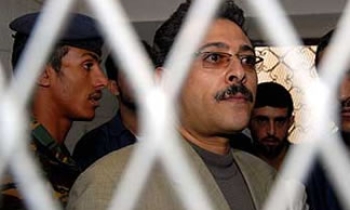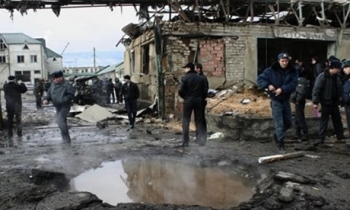The International Press Institute (IPI) has expressed sadness at news of the death of two journalists in the West African nation of Guinea. According to the BBC, the journalists’ bodies were found in a septic tank along with five other bodies believed to be health workers.
The journalists had disappeared last Tuesday, along with three doctors, after being attacked with stones by locals in the small town of Wome, located near to where the Ebola outbreak was first spotted earliest this year, the BBC reported today.
The Media Foundation for West Africa identified the two journalists as Facely Camara of Radio Liberté FM and Molou Chérif, who worked for a community radio station in the town of Nzérékoré. The technician, also from the community station, was identified as Sidiki Sidibé. A spokesman for the Guinean government, Albert Damantang Camara, told the BBC that the victims had been "killed in cold blood by the villagers".
According to the World Health Organisation (WHO), Guinea has been “severely affected†by current Ebola outbreak. The body has cited a “very weak health system, lacking human and infrastructural resources†as the cause for the rising spread of the epidemic in this region.
“Our sympathies go out to the families of the slain journalists as well as the health and government workers. The violent deaths of these three brave reporters represent the danger journalists face everyday across the world, particularly when covering delicate issues such as a health outbreak of this magnitude,†said IPI Executive Director, Alison Bethel McKenzie. "We count on the media to provide information - sometimes lifesaving information - to citizens in times of crisis, and we call on residents to respect reporters and photojournalists and allow them to do their work unharmed."
The WHO has emphasised that community engagement is key to successfully controlling outbreaks such as the Ebola epidemic, further reinforcing the importance of the media’s presence in the affected areas. “Raising awareness of risk factors for Ebola infection and protective measures that individuals can take is an effective way to reduce human transmission,†the WHO stated on its website. “Ebola or Marburg virus disease outbreaks constitute a major public health issue in Sub-Saharan Africa.â€
So far this year, Ebola has infected some 5,357 people in West Africa, killing more than 2,625 people, Reuters reported today.









